
Professor Anita Grigoriadis
Professor of Molecular and Digital Pathology
Research interests
- Cancer
Biography
Anita Grigoriadis is a Professor of Molecular and Digital Pathology in the School of Cancer & Pharmaceutical Sciences, in the Faculty of Life Sciences and Medicine at King’s College London. Anita is an Executive Committee Member and the Training Lead of the CRUK City of London Centre and is co-leading the Spatial Biology Facility at King’s College London.
Anita heads the Cancer Bioinformatics teams, primarily composed of computer scientists, who develop and implement AI-powered analytical approaches to explore large-scale data, ranging from digitised whole slide images of H&E-stained tissue to subcellular spatial transcriptomics. Her research explores molecular and morphological determinants at the primary tumour lesion and in nearby lymph nodes, reflective of local and systemic immune responses, and how the sum of these individual components influences treatment response and disease progression of triple-negative breast cancer patients. Cancer Bioinformatics’ expertise in digital pathology and image analyses has moved Anita’s research into the area of early cancer detection, where they have built a normal breast tissue databank of hundreds of digitised Whole Slide Images and FFPE samples of normal breast tissue, obtained from healthy women, cosmetic- and risk-reduction mammoplasties, to high-risk germline BRCA1/2 mutation carriers and triple-negative breast cancer patients.
Recently Anita has received funding from the UK government’s Research Ventures Catalyst (RVC) programme, to establish PharosAI, a partnership between King’s College London, Guy’s and St Thomas Foundation Trust, Barts Health Trust and Queen Mary University of London. PharosAI’s goal is to be a catalyst for AI models in health research and health care, and how this work can help set the standards for frameworks, platforms, tools, and policies to enable AI/ML models in a safe and ethically appropriate manner.
Research
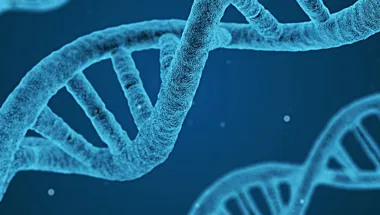
Cancer Bioinformatics
The Cancer Bioinformatics group is exploring molecular determinants at the primary tumour site and in the draining lymph nodes, mainly in triple negative breast cancers.
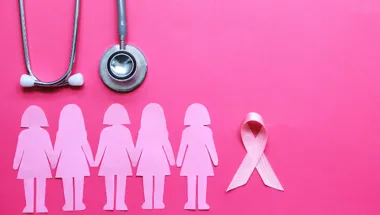
Breast Cancer Now Research Unit
Breast Cancer Now Research Unit
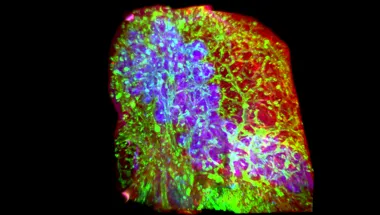
From Developmental Biology to Regenerative Medicine
Understanding organ development and tissue regeneration provides a framework for elucidating disease mechanisms as well as for developing new therapeutics.
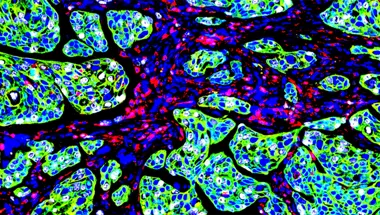
Spatial Biology Network
The Spatial Biology Network is a cross-faculty research interest group that brings together researchers from various disciplines, ranging from technology development and molecular biology, to bioinformatics and clinical translational research, to explore the complexity of spatial biology.
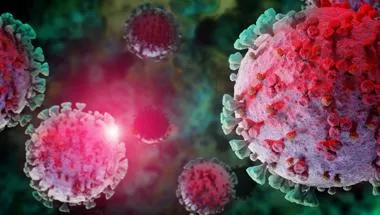
King’s MechanoBiology Centre (KMBC)
The King’s MechanoBiology Centre gives a common platform for researchers across different disciplines with complementary interests in mechanobiology

Immunometabolism (iMet) Research Interest Group (RIG)
The aim of the i-met research interest group is to stimulate novel collaborations in the field of Immunometabolism, a young but rapidly growing field of research.
News
King's celebrates advances in innovation at the Spinout Accelerator Showcase
The King’s community gathered at Bush House to celebrate the conclusion of the inaugural cohort of the King’s Spinout Accelerator and their progress over the...
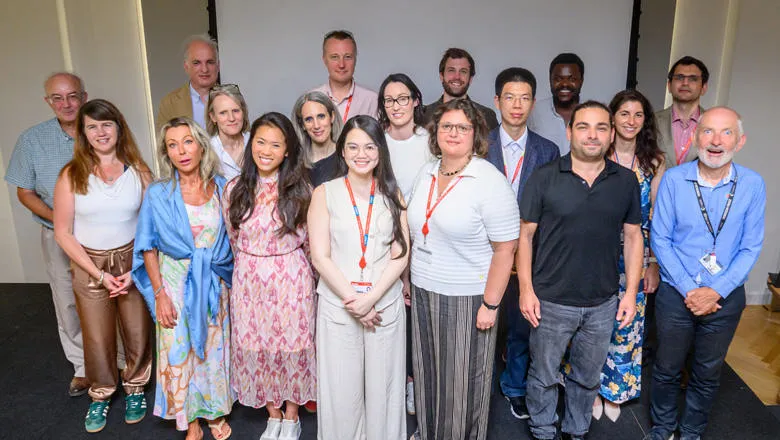
King's researchers make splash at CRH Innovation and Entrepreneurship Awards 2025
A wide cohort of researchers from King’s have been shortlisted for the Cancer Research Horizons Innovation and Entrepreneurship Awards 2025, shining a...

AI minister visits King's to celebrate £18.9 million funding
A ground-breaking research collaboration that will democratise cancer AI research and accelerate the path to AI-powered cancer care has received £18.9 million...
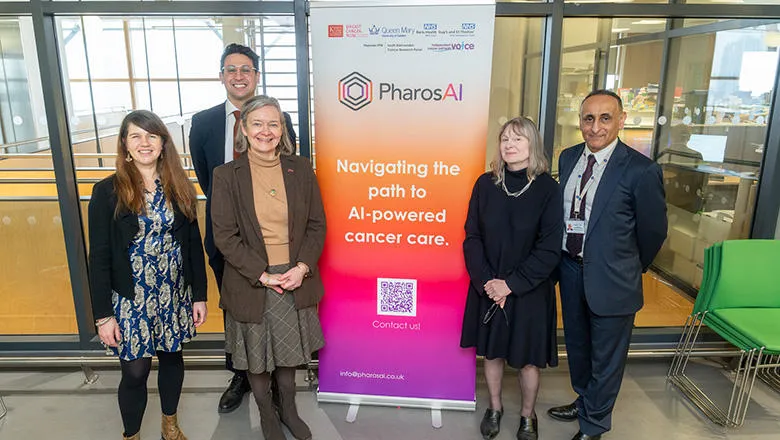
Meet the Spinouts on King's Spinout Accelerator
10 spinouts derived from King’s research community will explore the commercial potential of their research on the King’s Spinout Accelerator.
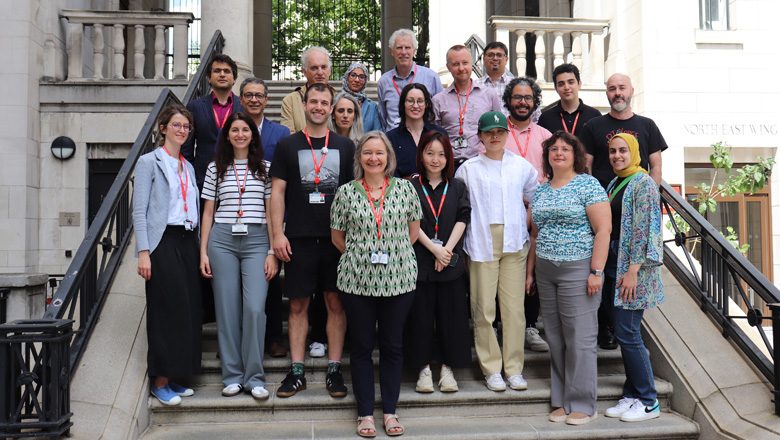
Cancer Research UK announce £10.5m boost for clinician scientist training
Cancer Research UK has announced that organisations in its City of London Centre network are set to receive a multimillion-pound cash injection to train more...
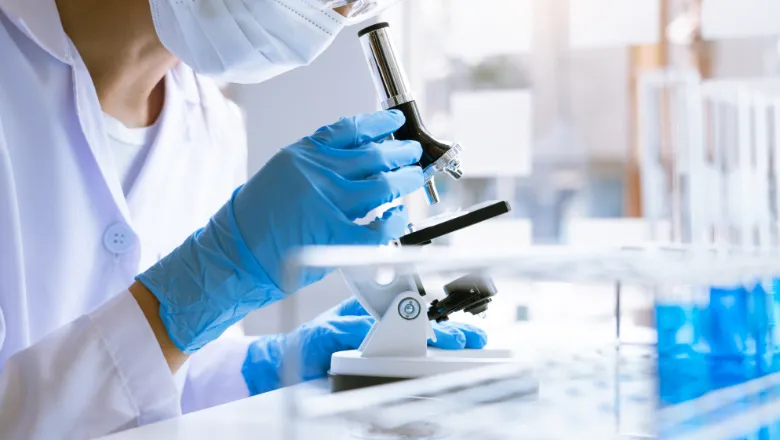
Seed funding granted to project seeking to boost AI-assisted healthcare
A King’s-led venture designed to help the UK navigate the path to AI-assisted healthcare has been awarded an initial grant to develop its proposal.

King's part of £80 million boost in AI research to deliver revolutionary new technologies
Nine research hubs across the UK will help underpin the country’s commitment to leading AI research, innovation and ethical deployment.

Tech event highlights new anti-cancer AI project
Professor Anita Grigoriadis and members of her lab were invited to a prestigious talk by Cognizant to discuss their Node Code Breakers project and role of AI...

AI model predicts if breast cancer will spread based on lymph node changes
Artificial intelligence (AI) can predict if an aggressive type of breast cancer will spread based on changes in a patient’s lymph nodes.
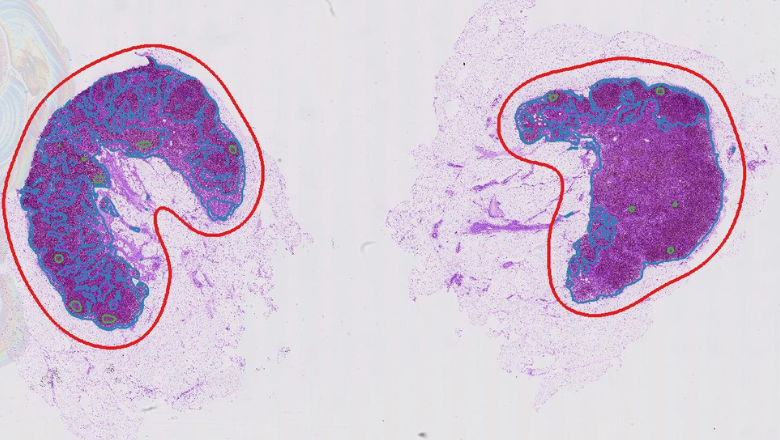
Researchers' new DCIS discovery could help avoid unnecessary breast cancer treatment
A new study from a team of King’s researchers in the School of Cancer & Pharmaceutical Sciences, led by Professor Elinor Sawyer, has contradicted the view...

Events

AI assisted tools for healthcare
Explore the opportunities and challenges posed by AI assisted tools for healthcare.
Please note: this event has passed.
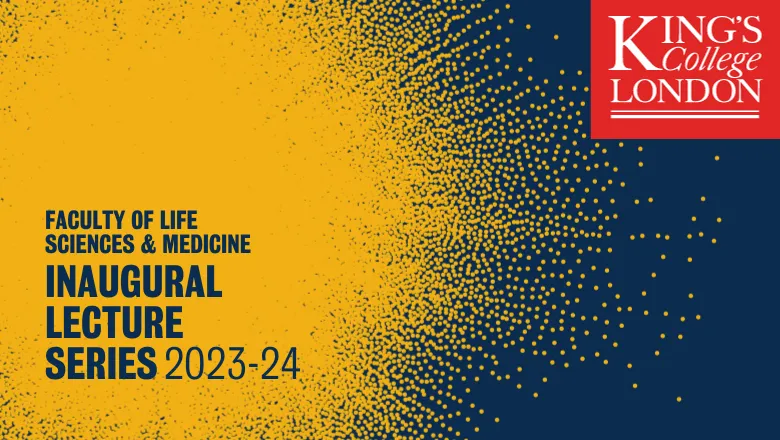
Inaugural Lectures: Professors James Galloway & Anita Grigoriadis
Inspiring talks from two of our new professors about rheumatic diseases epidemiology and breast cancer research
Please note: this event has passed.
Features
Reflections on King's Spinout Accelerator
The King’s Spinout Accelerator offers a unique pathway to fast-track groundbreaking innovations from research, but what’s the experience like for academics...

5 minutes with Anita Grigoriadis
Professor Anita Grigoriadis is Head of the Comprehensive Cancer Centre and interim Joint Head of the School of Cancer & Pharmaceutical Sciences. We caught up...

Research

Cancer Bioinformatics
The Cancer Bioinformatics group is exploring molecular determinants at the primary tumour site and in the draining lymph nodes, mainly in triple negative breast cancers.

Breast Cancer Now Research Unit
Breast Cancer Now Research Unit

From Developmental Biology to Regenerative Medicine
Understanding organ development and tissue regeneration provides a framework for elucidating disease mechanisms as well as for developing new therapeutics.

Spatial Biology Network
The Spatial Biology Network is a cross-faculty research interest group that brings together researchers from various disciplines, ranging from technology development and molecular biology, to bioinformatics and clinical translational research, to explore the complexity of spatial biology.

King’s MechanoBiology Centre (KMBC)
The King’s MechanoBiology Centre gives a common platform for researchers across different disciplines with complementary interests in mechanobiology

Immunometabolism (iMet) Research Interest Group (RIG)
The aim of the i-met research interest group is to stimulate novel collaborations in the field of Immunometabolism, a young but rapidly growing field of research.
News
King's celebrates advances in innovation at the Spinout Accelerator Showcase
The King’s community gathered at Bush House to celebrate the conclusion of the inaugural cohort of the King’s Spinout Accelerator and their progress over the...

King's researchers make splash at CRH Innovation and Entrepreneurship Awards 2025
A wide cohort of researchers from King’s have been shortlisted for the Cancer Research Horizons Innovation and Entrepreneurship Awards 2025, shining a...

AI minister visits King's to celebrate £18.9 million funding
A ground-breaking research collaboration that will democratise cancer AI research and accelerate the path to AI-powered cancer care has received £18.9 million...

Meet the Spinouts on King's Spinout Accelerator
10 spinouts derived from King’s research community will explore the commercial potential of their research on the King’s Spinout Accelerator.

Cancer Research UK announce £10.5m boost for clinician scientist training
Cancer Research UK has announced that organisations in its City of London Centre network are set to receive a multimillion-pound cash injection to train more...

Seed funding granted to project seeking to boost AI-assisted healthcare
A King’s-led venture designed to help the UK navigate the path to AI-assisted healthcare has been awarded an initial grant to develop its proposal.

King's part of £80 million boost in AI research to deliver revolutionary new technologies
Nine research hubs across the UK will help underpin the country’s commitment to leading AI research, innovation and ethical deployment.

Tech event highlights new anti-cancer AI project
Professor Anita Grigoriadis and members of her lab were invited to a prestigious talk by Cognizant to discuss their Node Code Breakers project and role of AI...

AI model predicts if breast cancer will spread based on lymph node changes
Artificial intelligence (AI) can predict if an aggressive type of breast cancer will spread based on changes in a patient’s lymph nodes.

Researchers' new DCIS discovery could help avoid unnecessary breast cancer treatment
A new study from a team of King’s researchers in the School of Cancer & Pharmaceutical Sciences, led by Professor Elinor Sawyer, has contradicted the view...

Events

AI assisted tools for healthcare
Explore the opportunities and challenges posed by AI assisted tools for healthcare.
Please note: this event has passed.

Inaugural Lectures: Professors James Galloway & Anita Grigoriadis
Inspiring talks from two of our new professors about rheumatic diseases epidemiology and breast cancer research
Please note: this event has passed.
Features
Reflections on King's Spinout Accelerator
The King’s Spinout Accelerator offers a unique pathway to fast-track groundbreaking innovations from research, but what’s the experience like for academics...

5 minutes with Anita Grigoriadis
Professor Anita Grigoriadis is Head of the Comprehensive Cancer Centre and interim Joint Head of the School of Cancer & Pharmaceutical Sciences. We caught up...

